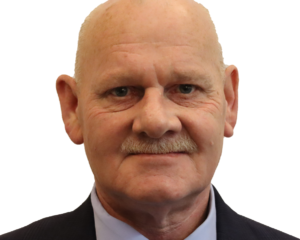A new report by the Kings Fund details the significant level of support unpaid carers in England provide to their family members or friends. The report “Caring in a Complex World.”, compiled by Deborah Fenney, Clair Thorstensen-Woll, and Simon Bottery, estimates unpaid carers provide care equivalent to the work of 4 million paid care workers, and sheds light on the challenges faced by unpaid carers and the need for better support systems
Unpaid carers play a crucial role in the health and care system, assisting individuals who are unable to cope without their support due to illness, disability, mental health problems, or addiction. However, despite their immense contributions, carers often struggle to access the support they need for their own health and well-being.
To gain insights into the current landscape of local support available to unpaid carers in England, the researchers conducted interviews with commissioners and support providers, organised focus groups with carers in four areas of the country, engaged national stakeholders, and reviewed existing literature and national data sets.
The findings highlighted the vital importance of good health and social care services for the individuals being cared for, as this significantly impacts the quality of life for unpaid carers themselves. The report also emphasised the detrimental effects of ongoing funding issues and workforce shortages in the health and social care sectors on carers and the support services available to them.
The report suggests several key recommendations to better support unpaid carers at the local level. Commissioners and service providers need to develop a deep understanding of the populations they serve and tailor local support offerings accordingly. Furthermore, it is crucial to embed awareness of carers’ needs in strategic-level decisions and commissioning processes. Currently, policy and services often fail to reflect the diversity within the carer population.
The report also emphasises the need for integrated care systems (ICS) to reduce the burden on carers. By aligning approaches to supporting unpaid carers at both the ICS and local levels, health and social care systems can work more cohesively and efficiently. This integration would help alleviate the challenges faced by carers and create a more supportive environment.
It is essential to acknowledge the diverse nature of unpaid carers, both in terms of their own characteristics and the types of care they provide. The 2021 Census revealed that 4.7 million people identified as carers, with varying levels of commitment. While most carers provide care for family members, one in ten carers extend their support to friends. The types of tasks provided by carers range from practical help to personal care, medicines, and assistance with care services and benefits.
The report also stresses the need for consistent data collection and resource allocation to understand and monitor meaningful outcomes for carers. Identifying good or poor practices from existing data sets remains challenging, but the researchers identified four insights that could improve support for unpaid carers. These include supporting local professionals in identifying and pointing carers to available services, actively developing awareness of local support offerings among carers, embedding carers’ needs in strategic decisions, and addressing the impact of wider health and care issues on carers.
While the research found that the local authorities interviewed for the report were highly engaged with carer issues, there was often a disconnect between the support professionals aimed to deliver and the experiences of unpaid carers. Access to quality health and social care for their loved ones emerged as a critical issue affecting carers’ quality of life. Carers often had to navigate the complex system and learn how it worked, suggesting a potential role for carers’ organisations in supporting advocacy efforts.
The report concludes by emphasising the emerging role of Integrated Care Systems in supporting unpaid carers. As carer support encompasses both health and social care, there is an opportunity to align approaches at the ICS and local levels. To realise this potential, strong leadership that recognises the value of carers within the broader system is necessary.
The “Caring in a Complex World” report serves as a reminder of the essential role unpaid carers play in society and the urgent need for improved support systems. By addressing the challenges faced by carers and embracing a more inclusive and integrated approach, England can pave the way for a more caring and compassionate society.
Resources
The Kings Fund: Caring in a Complex World






